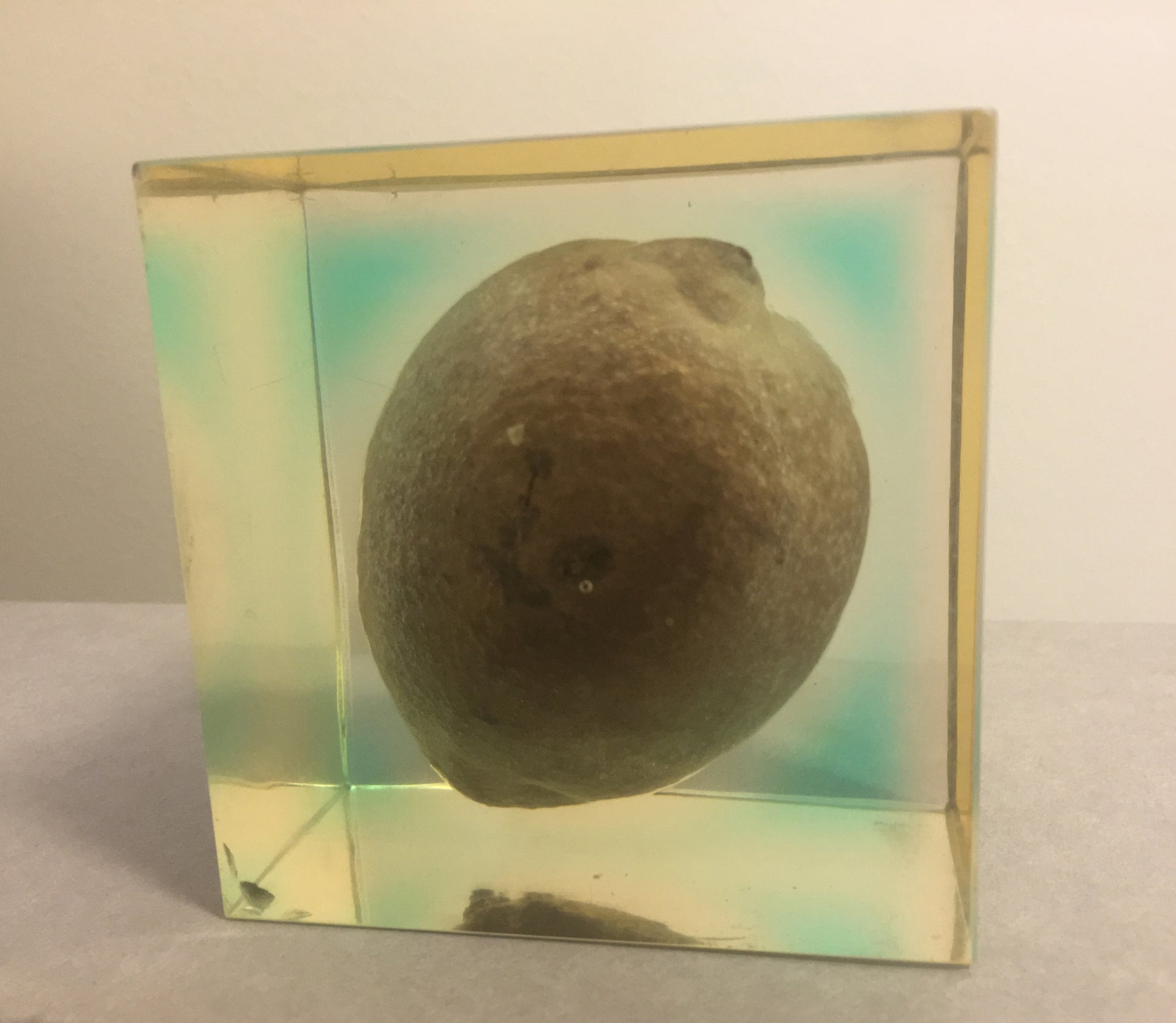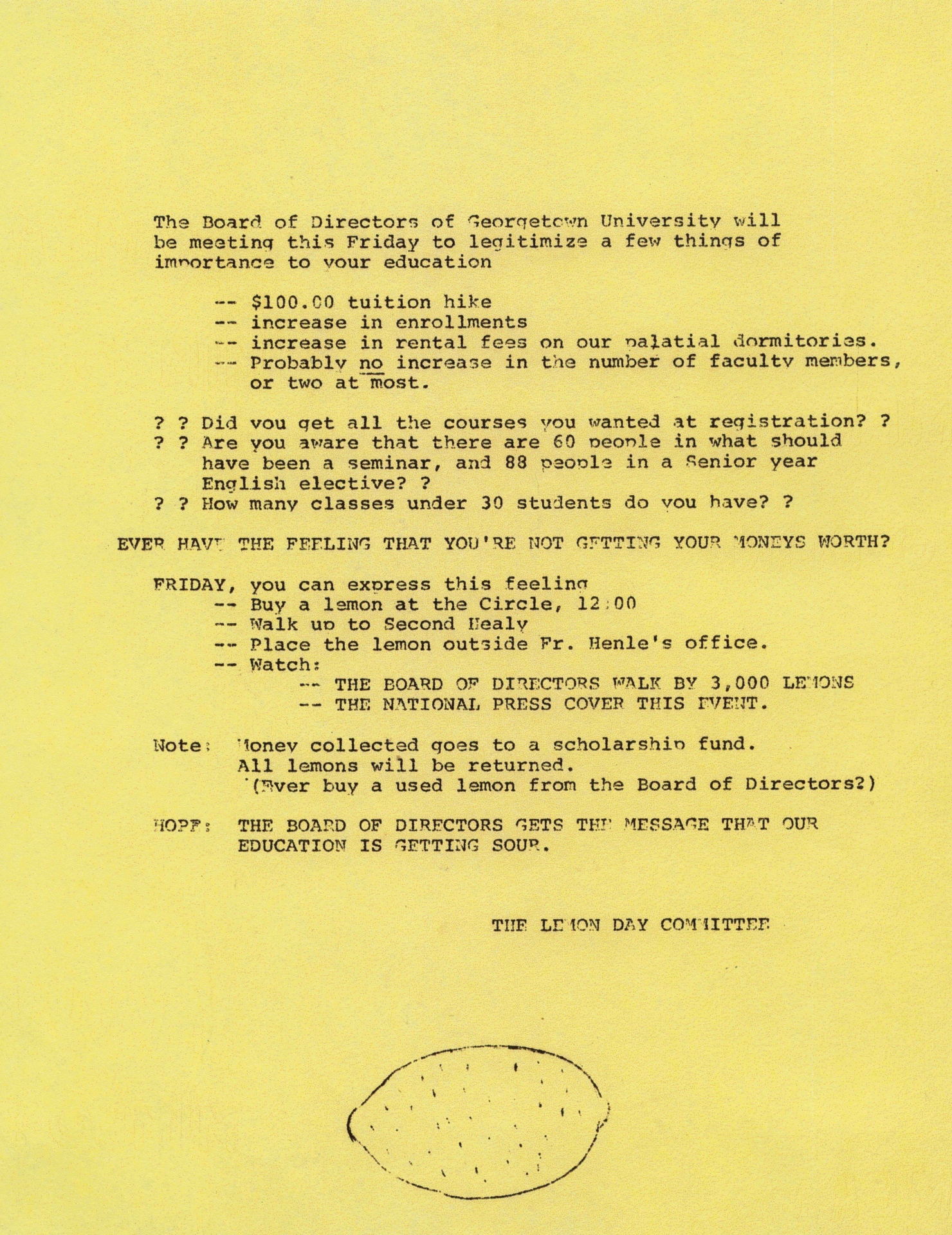 I'm often asked to name the most unusual item in the University Archives collection. My response is sometimes influenced by the records I've most recently worked with but, more often than not, I say it is a lemon. Now as a general rule, fresh produce and archives do not pair well (we have a strict no eating/drinking policy within our spaces, after all). But this particular lemon is pretty archives-friendly, given that it is entirely encased in an acrylic cube. It is also over 45 years old but looks good for its age, as the acrylic is retarding the decomposition process rather effectively.
I'm often asked to name the most unusual item in the University Archives collection. My response is sometimes influenced by the records I've most recently worked with but, more often than not, I say it is a lemon. Now as a general rule, fresh produce and archives do not pair well (we have a strict no eating/drinking policy within our spaces, after all). But this particular lemon is pretty archives-friendly, given that it is entirely encased in an acrylic cube. It is also over 45 years old but looks good for its age, as the acrylic is retarding the decomposition process rather effectively.
Sadly, there is no documentation in the archives as to who preserved the lemon or who donated it (if you have details, please let us know). It was here when I arrived in 1994. The understanding of the Archives staff is that the lemon played an active role in the lemonstration organized on February 2, 1973. A lemonstration is, naturally, a demonstration involving lemons and during this campus protest, students placed around 6000 lemons against the door to the President’s Office while the Board of Directors was meeting inside. The protest was over proposed increases in tuition and board and also rising enrollments. In case you are wondering how 6000 lemons happened to be available, student vendors organized by the Lemon Day Committee sold them in front of Healy Hall for 5 cents each, with the money raised going to a scholarship fund. These vendors hawked their wares by shouting slogans such as Buy a lemon - Show the Board of Directors your education has gone sour. Undeterred, the Board approved the increases.

(Transcription of the Lemonstration Flyer)
Many of the items in the Archives require careful handling because of their age and/or format. Not so the lemon, and its virtually indestructible nature has allowed it to accompany me to many student instruction sessions, presentations, and open houses where it has been passed around, held up to the the light, and closely examined for signs of decay. The presence of the lemon elicits conversation, testifies to the ingenuity and creativity of the Georgetown students who shaped and participated in the protest, and challenges expectations of what you might expect to find in an archives.
Visitors are very welcome to see the lemon "in person" in the Booth Family Center for Special Collections on the 5th floor of Lauinger.
--Lynn Conway, University Archivist
August 23, 2018
